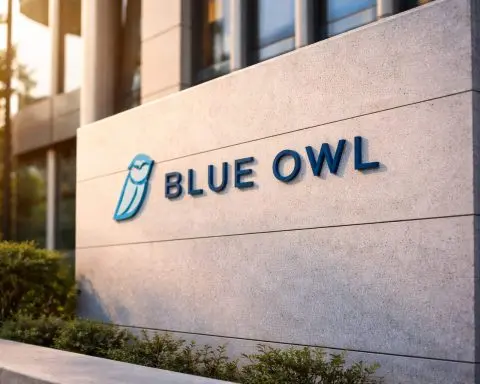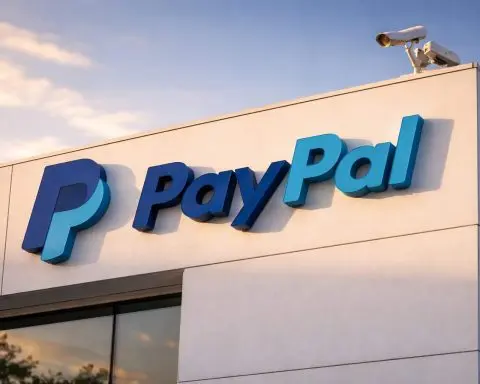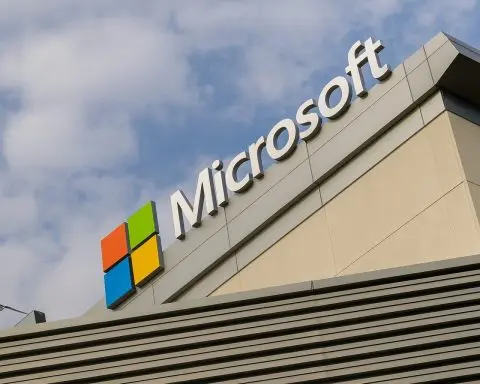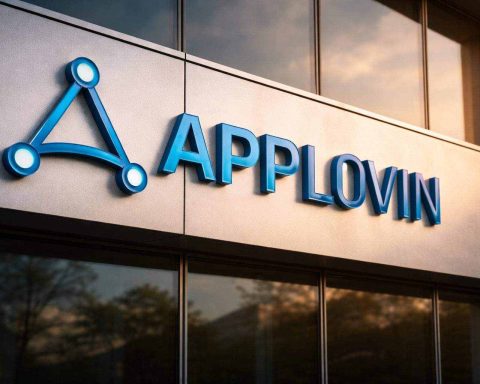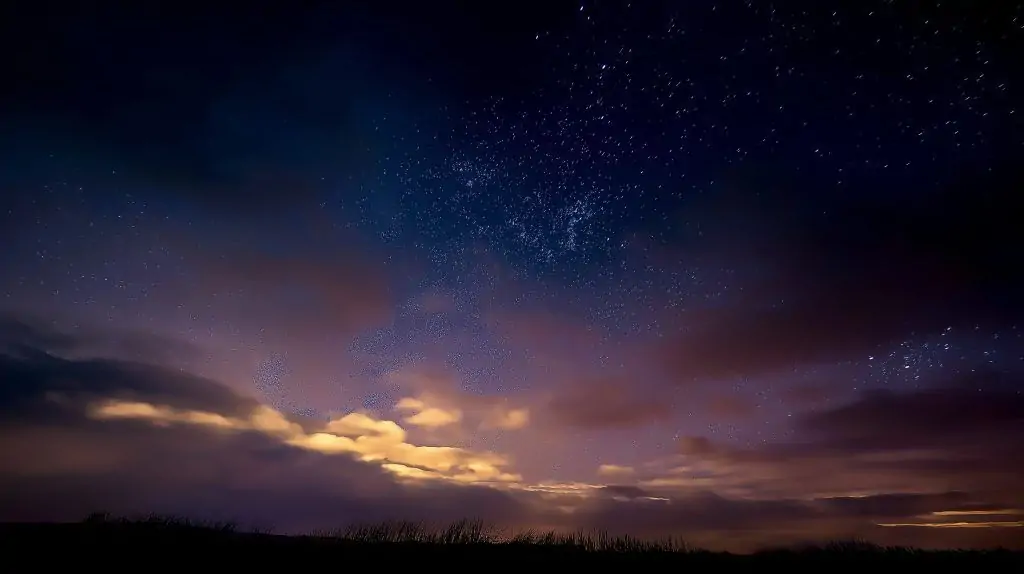- Apple forecast higher revenue for the upcoming quarter after a tariff-driven early surge in iPhone purchases aimed at beating U.S. import tariffs.
- Nintendo said its Switch 2 sold over 6 million units in the first seven weeks after the June debut and kept its full-year forecast at 15 million Switch 2 consoles through March 2026.
- TSMC reported a 60.7% year‑over‑year jump in Q2 net profit to NT$398.3 billion, a record, helped by demand for advanced chips across data centers and smartphones.
- AMD began shipping the Ryzen Threadripper PRO 9000 series, featuring up to 96 cores on Zen 5, with rollout starting July 23 and top models priced in four figures.
- Google issued an urgent Chrome update to patch CVE-2025-30501, a zero‑day in the JavaScript engine that is already being exploited in the wild.
- Arctic Wolf Labs warned of a surge in Akira ransomware intrusions exploiting SonicWall VPN appliances, with attackers deploying file‑encrypting malware after gaining initial access.
- AdGuard announced it will block Microsoft’s Windows Recall system‑wide, disabling Recall across the OS to protect user privacy.
- SpaceX’s Crew-11 mission arrived at the International Space Station on Aug. 2 after a 15‑hour flight, delivering four new crew members to Expedition 73.
- Blue Origin’s NS-34 suborbital flight on Aug. 3 carried six civilians, including Justin Sun, a 34-year‑old crypto billionaire, and lasted about 11 minutes from launch to landing.
- Vatican City unveiled a plan to build a 430‑hectare solar farm north of Rome to power the city with 100% renewable energy at a projected cost under €100 million.
Consumer Tech & Gaming: iPhone Boom and Nintendo’s Switch Surge
In consumer electronics, two industry giants are seeing strong demand. Apple Inc. delivered an upside surprise in its latest earnings, forecasting higher revenue for the upcoming quarter than analysts expected. The company credited an early rush of iPhone purchases by customers trying to beat incoming U.S. import tariffs reuters.com. One analyst noted that Apple’s tariff-driven sales surge shows how eagerly consumers will act to avoid higher prices, underscoring the iPhone’s enduring appeal even in uncertain economic conditions. Apple’s bullish outlook sent a positive signal through tech markets, even as the company faces upcoming challenges like new product launches and evolving trade policies.
Meanwhile in gaming, Nintendo revealed that its new Switch 2 console is off to a roaring start. The Kyoto-based firm announced it sold over 6 million Switch 2 units in the first seven weeks after its June debut reuters.com – a figure that handily exceeds initial estimates. “The six million units sold are a testament to the incredible pent-up demand for an update of the first Switch,” said Serkan Toto, a video game industry consultant reuters.com. Blockbuster game titles like Mario Kart World (often bundled with the device) helped fuel early adoption. Nintendo is maintaining its full-year sales forecast of 15 million Switch 2 consoles through March 2026, expressing confidence that momentum will continue reuters.com reuters.com. The company also noted its quarterly operating profit edged up 4% year-on-year, suggesting that strong Switch 2 demand is already boosting the bottom line reuters.com. All eyes will be on Nintendo’s holiday season performance, as it races to keep up with enthusiasm for its latest gaming system.
Semiconductors & Industry: Chip Profits Soar, AMD’s 96-Core Beast
It was a banner quarter for the semiconductor sector. Taiwan’s TSMC, the world’s largest contract chipmaker, reported a stunning 60.7% jump in quarterly net profit, reaching a record NT$398.3 billion (≈$13.5 billion) for Q2 reuters.com reuters.com. The earnings easily beat market forecasts, thanks to surging global demand for advanced chips across data centers, smartphones, and more. TSMC – which counts industry titans like Apple and NVIDIA as customers – said orders remained strong for its cutting-edge silicon. However, executives cautioned that geopolitical factors, including new U.S. tech export rules and tariffs, could pose headwinds in coming months reuters.com. Investors have nonetheless cheered TSMC’s results as a sign that the post-pandemic slump in chip sales may be reversing. (Notably, the company’s leadership also hinted at growing interest in chips for artificial intelligence – although AI-specific developments are outside the scope of this report.)
Another chipmaker making news is AMD, which has begun shipping its monster new CPU line. The company’s Ryzen Threadripper PRO 9000 series – unveiled in late July – is now rolling out globally for high-end PC workstations amd.com. These chips, built on AMD’s “Zen 5” architecture, pack up to 96 processing cores on a single chip and claim the title of world’s fastest workstation processor amd.com. Aimed at professionals in fields like 3D rendering, scientific computing, and video production, Threadripper 9000 CPUs deliver a significant leap in multi-threaded performance. AMD says it collaborated with major OEMs (Dell, HP, Lenovo, and others) to ensure systems featuring the 9000-series would be available starting July 23 amd.com. Early industry reviews have lauded the chips’ unprecedented core counts and improved efficiency, though with top models priced well into four figures, these processors target a niche of power-hungry users. The semiconductor arms race clearly isn’t slowing down – if anything, it’s entering a new phase of ultra-powerful silicon for those who can harness it.
Cybersecurity & Privacy: Chrome Zero-Day and Ransomware Rampage
It was a busy (and at times alarming) weekend on the cybersecurity front. Google issued an urgent update for its Chrome browser after patching a serious zero-day vulnerability in the software’s JavaScript engine bostoninstituteofanalytics.org bostoninstituteofanalytics.org. The security hole (CVE-2025-30501) could enable remote code execution and was already being exploited in the wild, Google warned. It marks the third Chrome zero-day exploit discovered in as many months bostoninstituteofanalytics.org. Security experts stress the importance of updating browsers immediately – especially given Chrome’s widespread enterprise use – as attackers have been quick to leverage these flaws on both Windows and macOS platforms bostoninstituteofanalytics.org. Google’s swift patch underscores the ongoing, high-stakes game of cat-and-mouse between browser developers and malicious hackers targeting ubiquitous internet software.
In a separate development, researchers are sounding the alarm over a ransomware surge that exploits enterprise networking gear. Cybersecurity firm Arctic Wolf Labs reported a spike in intrusions by the Akira ransomware group, which has been targeting SonicWall VPN appliances – even those fully up to date on patches thehackernews.com thehackernews.com. Investigators suspect the attackers may be using “an as-yet-undetermined security flaw” in SonicWall’s VPN software, effectively a zero-day vulnerability, to gain initial access to corporate networks thehackernews.com. “In the intrusions reviewed, multiple pre-ransomware events involved VPN access through fully-patched SonicWall devices,” noted Arctic Wolf researcher Julian Tuin in the report thehackernews.com. Once inside, the Akira actors deploy file-encrypting malware and demand payment, often in cryptocurrency, to restore the data. SonicWall said it is investigating the claims; meanwhile, cybersecurity agencies are urging organizations to monitor VPN logs for unusual logins and to ensure multi-factor authentication is enabled. The incident is another stark reminder that even well-maintained infrastructure can harbor unknown weaknesses – and ransomware gangs are becoming adept at finding them.
Privacy advocates also cheered a small win this weekend: AdGuard, a popular ad-blocking and security app, announced it will let users block Microsoft’s controversial “Windows Recall” feature system-wide news.filehippo.com news.filehippo.com. Windows Recall is a new tool that continuously records screenshots to create a searchable activity log, but experts warn it could capture sensitive personal information news.filehippo.com. Previously, only apps like Signal and Brave could prevent Recall from logging their own windows; AdGuard’s update goes further by disabling Recall across the entire operating system news.filehippo.com. While Microsoft argues Recall improves productivity, digital rights groups have called it a potential privacy nightmare. With AdGuard’s move, users concerned about unwarranted screen capture have another way to protect their data – at least until Microsoft provides an official opt-out or more transparency on how Recall’s data is stored.
Space & Aerospace: Crew Reaches ISS, Blue Origin Lifts Off
It’s been a dramatic weekend in space technology, marked by both routine successes and new beginnings. High above Earth, SpaceX’s Crew-11 mission arrived safely at the International Space Station in the early hours of Saturday. After a 15-hour flight launched from Florida the day before, the Crew Dragon Endeavour capsule docked autonomously at 2:27 a.m. EDT on Aug. 2 cbsnews.com cbsnews.com. The mission delivered four fresh crew members – two NASA astronauts, a JAXA (Japanese) astronaut, and a Roscosmos cosmonaut – to join Expedition 73 on the ISS nasa.gov. “Endeavour, welcome to the International Space Station,” astronaut Jonny Kim radioed from the ISS as the vehicles latched securely. “Hello, space station, Crew-11 is here!” replied Mike Fincke, the veteran NASA commander leading the mission news4jax.com. “We will do our best to be good stewards of our beautiful ISS during our stay,” Fincke added, noting that the orbital outpost is nearing 25 years of continuous human occupancy cbsnews.com cbsnews.com. After hatch opening, the newcomers floated into the ISS to hugs from the existing crew, bringing the station’s population to 11 people. The successful rendezvous clears the way for the prior ISS cohort (Crew-10) to head home after a six-month stint in orbit. NASA officials highlighted that this rapid same-day launch-and-dock (under 16 hours) demonstrates the efficiency of SpaceX’s system – effectively delivering astronauts to the ISS almost as quickly as a flight from New York to New Zealand, but 250 miles up.
Down on Earth, Blue Origin – Jeff Bezos’s private space venture – made headlines of its own by launching its next tourist spaceflight on Sunday. The suborbital New Shepard rocket lifted off from West Texas at 8:30 a.m. local time on Aug. 3, carrying six civilian passengers on a brief thrill ride to the edge of space space.com space.com. The mission, dubbed NS-34, is Blue Origin’s 13th crewed flight and featured an eclectic international roster. Topping the lineup was Justin Sun, a 34-year-old cryptocurrency billionaire from China, who finally got his ride to space after bidding $28 million in a 2021 charity auction for an earlier flight space.com. Joining Sun were adventurers and professionals from around the globe: a real-estate investor from California (by way of India), a Turkish tech entrepreneur, a meteorologist from Puerto Rico, a British philanthropist, and an American businessman who had flown on a previous New Shepard flight space.com space.com. After soaring past the Kármán line – about 62 miles (100 km) high – the crew experienced roughly four minutes of weightlessness, gazing at Earth’s curvature against the blackness of space economictimes.indiatimes.com economictimes.indiatimes.com. The entire journey lasted about 11 minutes from launch to capsule parachute landing in the desert economictimes.indiatimes.com. Blue Origin’s live webcast showed the six smiling spacefarers emerging from the capsule to cheers and celebratory hugs with the ground team. This flight makes the Vatican strikes solar farm deal to become the world’s first carbon-neutral state total number of people Blue Origin has flown to space over 60 (many of them private citizens). The company said the mission “went perfectly” and reflects its commitment to making space accessible – albeit at a steep ticket price rumored to be in the low seven figures. With Virgin Galactic also launching tourists this summer, the space tourism race is clearly heating up. (NASA, for its part, continues to collaborate with SpaceX on more orbital missions as it plans ahead for Artemis Moon flights, another major story expected later in 2025.)
Clean Energy Tech: Vatican’s Solar Leap and Green Milestones
In the realm of clean energy technology, an unlikely player made worldwide news: Vatican City. The tiny city-state, home of the Roman Catholic Church, unveiled an ambitious plan to become the planet’s first carbon-neutral country – by covering a huge swath of land with solar panels. Late this week the Vatican struck a deal with Italy to develop a 430-hectare solar farm (about 1,000 acres) on church-owned land north of Rome apnews.com. Once completed, this vast array of photovoltaic panels is expected to generate enough electricity to meet all of Vatican City’s energy needs and eliminate its carbon footprint apnews.com. Vatican officials estimate the project will cost under €100 million ($110 million) to build, and Italian authorities have agreed to fast-track approvals in support of the climate-friendly venture apnews.com. The solar farm plan is a direct response to Pope Francis’s call in his Laudato Si’ encyclical for bold action on climate change and environmental stewardship. If all goes smoothly, Vatican City – which currently relies on Italy’s power grid – could be running on 100% renewable energy within a few years. It would mark a historic first: the world’s only nation achieving net-zero emissions. Observers say the move is as symbolic as it is practical. “The Vatican going solar sends a powerful message that even the oldest institutions can embrace modern green technology,” noted one climate policy expert. With other microstates like Monaco and Luxembourg also exploring green initiatives, the Vatican’s solar farm could inspire a broader shift toward clean energy adoption, even among larger nations. (For context, the Vatican’s total electricity usage is modest – roughly comparable to a town of 5,000 – but the project’s significance far exceeds its size.) As the solar panels begin to harvest God’s plentiful sunlight, Vatican City aims to illuminate a path forward for sustainable tech and moral leadership on environmental issues apnews.com.
In other clean-tech news, electric vehicles and renewable power continue to advance worldwide (though without any one headline-grabbing development on Aug 2–3). Notably, some automakers released mid-year EV sales figures showing steady growth, and researchers in California are piloting portable 5G networks on farms to help manage solar-powered agricultural robots in remote areas (combining green energy and telecom tech). These incremental strides, alongside landmark projects like the Vatican’s, highlight how technology is accelerating the global shift toward a cleaner, more sustainable future.
Tech Policy & Internet: UK’s Online Safety Battle and Age Checks
Major moves in tech policy and internet regulation unfolded in the UK over the weekend, centering on the country’s controversial Online Safety Act. The sweeping new law – intended to police illegal and harmful content on the internet – has drawn fire from different sides for its potential impact on privacy and free expression. This weekend, Elon Musk’s X (formerly Twitter) sharply criticized the Online Safety rules, claiming they “risk suppressing free speech” due to overly heavy-handed enforcement reuters.com reuters.com. X said it has already implemented the required age-verification and content moderation measures, but argued that the Act’s “breadth of regulatory reach” is forcing platforms to over-censor even lawful content reuters.com reuters.com. “When lawmakers approved these measures, they made a conscientious decision to increase censorship in the name of ‘online safety’,” X stated pointedly in a submission to the UK government reuters.com. The company urged “significant changes” to ensure the rules truly target bad actors rather than burdening ordinary users and speech reuters.com reuters.com. Musk himself weighed in on social media, amplifying concerns that the law could be abused to stifle dissent. British officials pushed back, with the Technology Secretary arguing that critics of the law are “on the side of predators” and emphasizing that child safety must come first reuters.com reuters.com. The war of words suggests the debate over balancing online safety and civil liberties is far from settled, even as the Act begins to take effect.
On a more practical note, tech companies are moving to comply with the new regulations’ demands – particularly the mandate to verify users’ ages on certain platforms. Microsoft’s Xbox division announced it has begun rolling out age verification for gamers in the UK to meet the Online Safety Act requirements news.filehippo.com. In partnership with digital ID firm Yoti, Microsoft is prompting players to prove they are over 18 by uploading a photo ID, a selfie, or using a credit card for an instant age check news.filehippo.com news.filehippo.com. Users’ verification data will be encrypted and promptly deleted after use, the company says, to address privacy concerns news.filehippo.com news.filehippo.com. The new checks will apply primarily to accounts that want access to mature or social features (for example, unverified users may eventually be restricted from services like Discord voice chat on Xbox). Microsoft’s move comes as pornography websites and social media platforms are implementing similar age gates in Britain – in some cases leading to clunky user experiences and backlash. Over 468,000 Britons have signed a petition to repeal the age-check law, complaining about having to upload personal documents to use the web reuters.com reuters.com. However, UK regulators and Ofcom (the internet watchdog) maintain that such steps are necessary to create a safer online environment for children. They have already launched investigations into several sites’ compliance reuters.com. The coming months will be a test of whether Big Tech can smoothly integrate stricter protections without driving away users. At least for now, British gamers are encountering a new login ritual – and British lawmakers are encountering fierce resistance from free speech advocates – as the country navigates this grand online safety experiment.
Sources: The above information is drawn from a compilation of reputable news outlets and official statements published on August 2–3, 2025. Key sources include Reuters reuters.com reuters.com reuters.com reuters.com bostoninstituteofanalytics.org thehackernews.com, the Associated Press apnews.com apnews.com, and other specialist tech news providers. Quotes from industry experts and officials were obtained from those reports to ensure accuracy and credibility. Please see the linked references for further details on each story.

